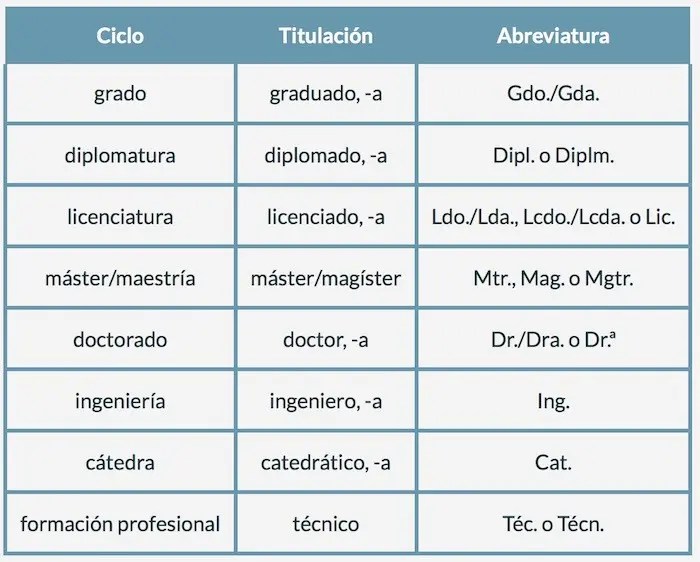The abbreviation of Magister is a topic that often sparks curiosity among students and professionals alike. This term, commonly associated with advanced academic degrees, holds significant importance in various fields of study. Understanding what it entails can help individuals navigate their educational and professional paths more effectively.
This article will delve into the intricacies of the Magister abbreviation, exploring its meaning, relevance, and implications for those pursuing higher education. We will also discuss the differences between Magister and other degrees, providing a comprehensive overview that caters to both newcomers and those looking to deepen their understanding.
Whether you are a student contemplating your next academic step or a professional seeking to enhance your qualifications, this guide will equip you with the knowledge you need. Let's embark on this journey to uncover the details surrounding the abbreviation of Magister.
Table of Contents
- What is Magister?
- History of Magister
- Magister vs Other Degrees
- Fields of Study for Magister
- Requirements for Obtaining a Magister
- Career Opportunities with a Magister Degree
- Global Acceptance of the Magister Degree
- Conclusion
What is Magister?
The term "Magister" is derived from Latin, meaning "master" or "teacher." In the context of higher education, it refers to a type of graduate degree awarded in various academic disciplines. This degree is often considered equivalent to a Master's degree in other educational systems.
In many countries, the Magister degree is a prerequisite for pursuing doctoral studies, making it a pivotal stepping stone for academic advancement. It signifies a higher level of expertise and specialization in a given field, demonstrating a commitment to furthering one's education.
History of Magister
The Magister degree has its roots in medieval universities, where it was awarded to individuals who had mastered a particular discipline. Over the centuries, the structure and requirements of the degree have evolved, adapting to the changing landscape of education.
Initially, the Magister degree was primarily associated with the fields of theology, law, and medicine. However, as academia expanded, the degree began to encompass a broader range of disciplines, reflecting the increasing specialization in higher education.
Magister vs Other Degrees
Understanding how the Magister degree compares to other educational qualifications is essential for prospective students. Here are some key differences:
- Magister vs Master's Degree: While both degrees indicate advanced study, the Magister is often more specialized and may require a thesis or comprehensive examination.
- Magister vs Doctorate: The Magister is typically a prerequisite for doctoral studies, focusing on mastery of a subject rather than original research.
- Magister vs Bachelor’s Degree: The Magister is pursued after completing a Bachelor's degree and indicates a higher level of academic achievement.
Similarities with Other Degrees
Despite these differences, the Magister degree shares similarities with other advanced degrees, such as:
- Both are recognized internationally.
- Both require significant academic commitment and usually involve a combination of coursework and research.
Fields of Study for Magister
The Magister degree is awarded in a variety of fields, including but not limited to:
- Humanities
- Social Sciences
- Natural Sciences
- Engineering
- Business Administration
Each field has its own specific requirements and expectations for obtaining the Magister degree, which can vary widely depending on the institution and country.
Requirements for Obtaining a Magister
To pursue a Magister degree, prospective students typically need to fulfill several requirements, including:
- A completed Bachelor's degree or equivalent qualification.
- Meeting specific academic prerequisites for the chosen field of study.
- Submission of standardized test scores (if applicable).
- Completion of a thesis or research project, depending on the program.
Career Opportunities with a Magister Degree
Earning a Magister degree opens various career pathways across numerous sectors. Graduates may find opportunities in:
- Academia as professors or researchers.
- Industry roles in management or specialized positions.
- Government and non-profit organizations.
The advanced knowledge and skills acquired during Magister studies can significantly enhance career prospects and earning potential.
Global Acceptance of the Magister Degree
The Magister degree is recognized in many countries, although the title and specific requirements may vary. In some regions, it is equivalent to a Master's degree, while in others, it holds unique significance. Understanding the global landscape of the Magister degree is crucial for international students and professionals.
Conclusion
In conclusion, the abbreviation of Magister represents a critical academic achievement that signifies advanced knowledge and specialization. As we have explored, it holds significant value across various fields and provides numerous career opportunities. If you're considering pursuing a Magister degree, it's essential to research your options thoroughly and understand the requirements specific to your chosen discipline.
We encourage you to leave your comments below, share this article with others, or explore more of our content to further your understanding of academic pathways!
Thank you for reading, and we look forward to providing you with more insightful articles in the future!
Article Recommendations
- Mamitha Baiju The Rising Star Of The Entertainment Industry
- Exploring The Life Of Jeff Bezos Exwife Mackenzie Scotts Journey And Philanthropic Impact
- Unveiling The Love Story Of Jerry Cantrell And His Wife


